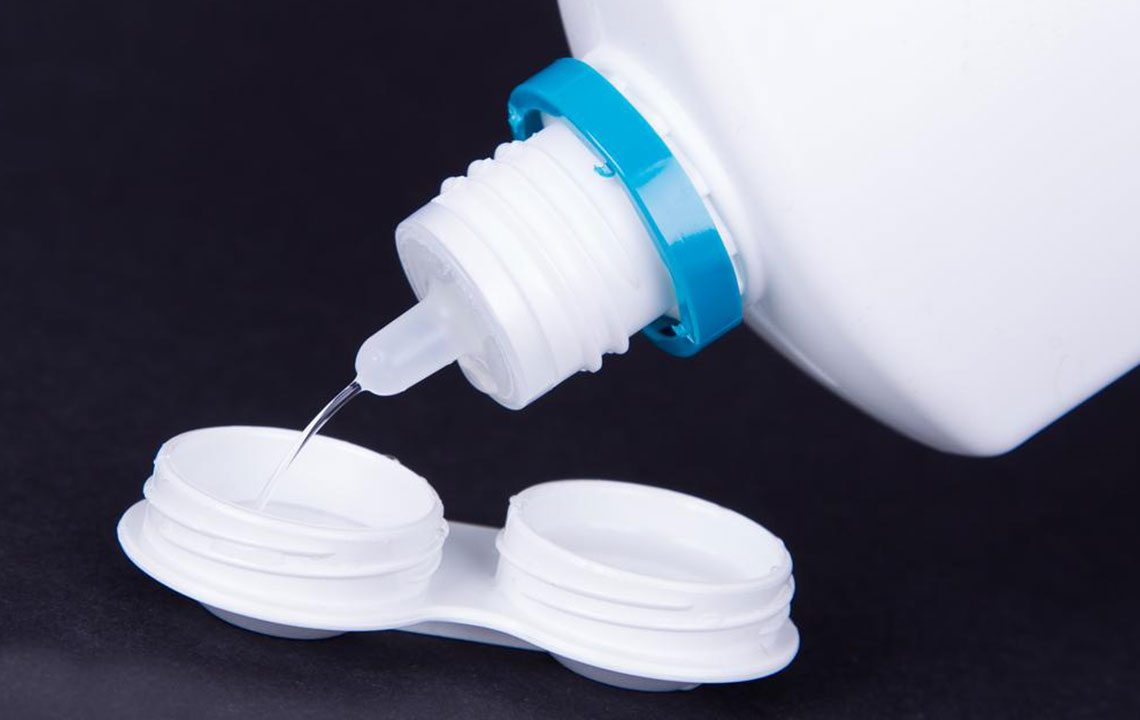Choosing The Best Contact Lenses for Dry Eyes

Most people with eye problems prefer contact lenses over glasses as they’re convenient. But one of the most common issues that people with contact lenses face is the drying up of their eyes. This is the result of dry eye syndrome. While this problem is prevalent amongst both users and non-users of contacts, wearing contacts aggravates the symptoms of dry eye syndrome. However, there are effective ways with which you can combat this issue. Read further to find out more.
Dry eye syndrome
Sometimes, your tear glands are not able to produce a right amount of tears to lubricate your eyes efficiently. This leads to dryness and irritation and sometimes even inflammation. Severe cases can even lead to scarring of the frontal surface of the eyes. This is a widespread condition which affects about 48% of the population of 18 and above.
Causes of dry eye syndrome
- Some causes include
- Damage to the tear glands
- Damage to the eyes and skin around it
- Hormonal changes
- Wearing contacts for extended periods
Treatment options for dry eyes
The best and the most common solution prescribed by doctors for dry eye syndrome is the usage of eye drops that help lubricate your eyes. Some behavioral changes can also help reduce your symptoms of dry eyes. If a specific type of medication is affecting your eyes and causing them to dry up as a side effect, then consider changing your medication. There is also a procedure to block the tear drainage system of your eyes, but this is only recommended in severe cases of dry eye syndrome.
The best contact lenses for dry eyes most times comes from a combination of several measures. You could change the material of your contacts, or replace their solution, or even try some other remedies that help control the symptoms of dry eyes. There are several materials available in the market that help reduce the symptoms of dry eyes. Some of these include:
- Soft lenses
Made from a specific type of plastic, these lenses allow oxygen to pass through them and are an excellent solution for people with chronic dry eyes. If you’re using hard contacts, switch to soft ones instead to reduce the symptoms of dry eyes. - Check for water content
Different contact lenses have different levels of wetness. Contrary to what you may believe, lenses with higher moisture levels can worsen the symptoms of dry eyes. They provide greater moisture when you first put them in but also dry out quickly. This intensifies when the lenses draw water out from the rest of the eyes to remain hydrated. Use contacts with lower moisture levels instead. - Silicone hydrogel lenses
Silicone contacts require less moisture and allow oxygen to pass through more freely compared to other contacts. These are slightly more expensive compared to the other contacts but are a better option if you suffer from dry eyes. - Disposable lenses
Some disposable contact lenses help reduce the feeling of dryness in your eyes. They can attract water and keep your eyes hydrated. If you can’t get disposable lenses, then try changing your lenses more frequently, greater than even the recommended limit by the manufacturer. - Scleral lenses
Most contacts have a diameter of about 9 mm, which is only sufficient to cover the iris or the colored portion of your eyes. Scleral lenses are larger and measure between 15 and 22 mm to include some portion of the Sclera, or the white part in the eyes as well. These lenses are often gas-permeable that enable oxygen to pass through. - Changing your contact solution
Sometimes, the problem may not be in your lenses, but in the solvent that you use to clean them. Some solutions have preservative which can cause irritation and dryness in your eyes. Some other types may not be compatible with your soft lenses, causing a reaction in your eyes. If you think that the root of the problem lies in the kind of solution you use, then consult a doctor for confirmation. Try switching solutions to find out which one suits your eyes better.
Other remedies
You could also gain relief by implementing simple steps along with switching to one of the best contact lenses for dry eyes. Make sure that you take proper care of your lenses. Follow instructions to clean and change lenses properly. Only keep your lenses on until the prescribed period by your doctor. Always moisten your eyes before you wear your lenses. Use hydrating eye drops to keep your eyes free from irritation. If none of these work out, then you may have to stop wearing your contacts for a few days.
Try rehydrating your eyes with tears without any preservatives for a few days to help your eyes recover. Make sure that you consult with your doctor before you resume using your contact lenses.



